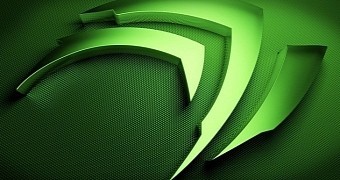Nvidia has just announced that a new Linux driver has been released in the Long-Lived branch, fixing just a few issues and bringing better texture transfers.
Nvidia doesn't usually launch a new update unless it's important, and that's especially true for the Long-lived branch, which is what normally lands in repositories. This is what you might call stable, so upgrading the Linux drivers on your computer, as soon as it becomes available in the repos, is probably a very good idea.
The GPU manufacturer has several driver branches, which are all maintained at the same time. The Long-Lived driver is the most stable and it's the one that's usually added to repositories. There is another stable branch called Short Lived, which is updated more often and gets many more changes. The Beta branch is where all the cool and shiny new things are added, but it's also the most unstable. And, at last, there is the Legacy branch, which provides support for old Nvidia GPUs.
A new Nvidia driver is always a good thing
Unlike its rival, AMD, Nvidia seems to have a much better hold on the driver release. They launch new drivers all the time, and they fix issues with each new version. On the other hand, new AMD drivers land less often and sometimes they don't even have a changelog.
"Fixed Pixel Buffer Object operations when row length is less than width. GL_[UN]PACK_ROW_LENGTH can be set to a value lower than the width of the operation being carried out. The OpenGL specification allows for this (the source or destination lines will be overlapping). Previously, our implementation of Pixel Buffer Objects did not support this case and would throw an error," reads the official changelog.
The developers also fixed an issue that affected Quadro GPUs, and they corrected a bug that was causing the loss of stereo synchronization in certain Quadro Sync configurations.
Users can download Nvidia 346.72 Linux drivers from Softpedia, for both the 32-bit and 64-bit architecture and give them a try. You can also download the drivers for the Solaris, FreeBSD, and ARM architectures.

 14 DAY TRIAL //
14 DAY TRIAL //